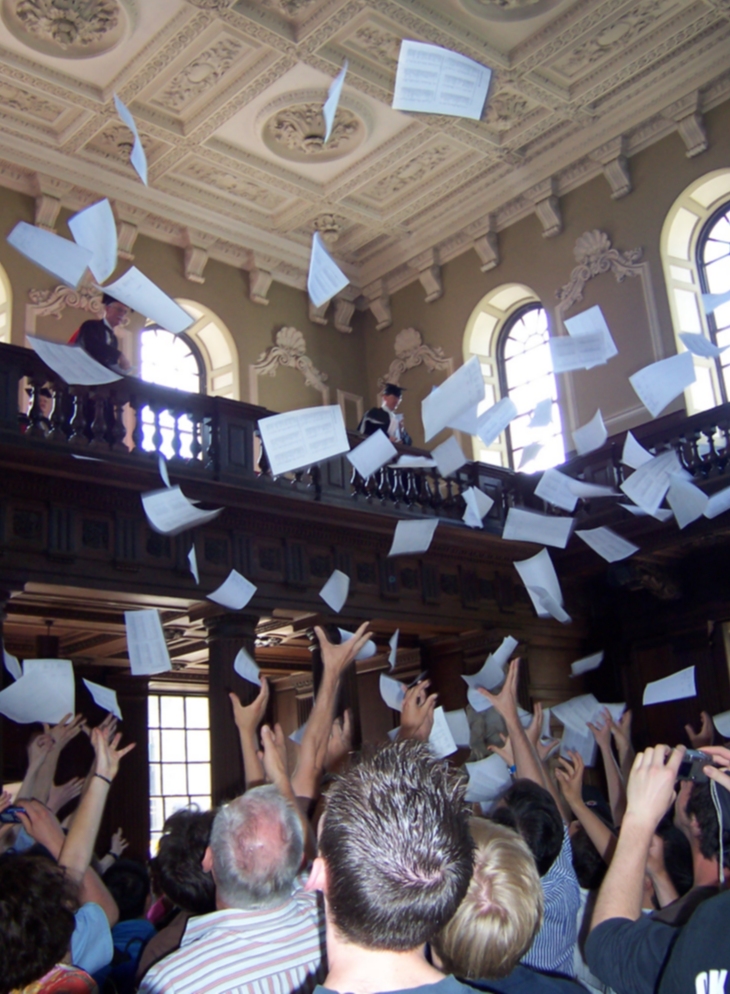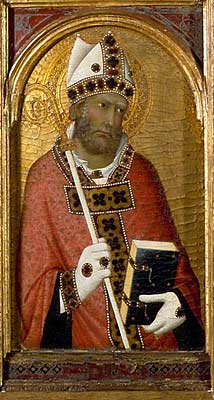|
A. S. F. Gow
Andrew Sydenham Farrar Gow (27 August 1886 – 2 February 1978) was an English classical scholar and teacher. Apart from eleven years as a master at Eton College between 1914 and 1925 his career was entirely at Trinity College, Cambridge. At Trinity, Gow was a colleague and friend of A. E. Housman, on whose works he became an authority. The two men shared a sharp-tongued scholarly intolerance of anything they saw as slipshod, pretentious or badly thought-through, but Gow nonetheless won the affection of many of his students. He was Housman's literary executor, and published a book about his friend shortly after Housman's death. Gow's principal subject as a scholar was the Greek bucolic poet Theocritus, his works on whom remain a core source for modern students of the poet. Life and career Early life Gow was born in Gower Street, London, Gower Street, London, the eldest of the three children, all of whom were boys, of Dr (later the Rev) James Gow (1854–1923) and his wife Gert ... [...More Info...] [...Related Items...] OR: [Wikipedia] [Google] [Baidu] |
Tripos
At the University of Cambridge, a Tripos (, plural 'Triposes') is any of the examinations that qualify an undergraduate for a bachelor's degree or the courses taken by a student to prepare for these. For example, an undergraduate studying mathematics is said to be reading for the ''Mathematical Tripos'', whilst a student of English literature is reading for the ''English Tripos''. In most traditional English universities, a student registers to study one field exclusively, rather than having " majors" or " minors" as in American, Australian, Canadian, or Scottish universities. In practice, however, most degrees may be fairly interdisciplinary in nature, depending on the subject. The multi-part tripos system at Cambridge also allows substantial changes in field between parts; the Natural Sciences Tripos is especially designed to allow a highly flexible curriculum across the sciences. Etymology The word has an obscure etymology, but may be traced to the three-legged stool candid ... [...More Info...] [...Related Items...] OR: [Wikipedia] [Google] [Baidu] |
Brian Sewell
Brian Alfred Christopher Bushell Sewell (; 15 July 1931 – 19 September 2015) was an English art critic. He wrote for the ''Evening Standard'' and had an acerbic view of conceptual art and the Turner Prize. ''The Guardian'' described him as "Britain's most famous and controversial art critic", while the ''Standard'' called him the "nation’s best art critic". Early life Sewell was born on 15 July 1931, in Hammersmith, London, taking his mother's surname, Perkins. The man who in later life he claimed was his father, composer Philip Heseltine, better known as Peter Warlock, died of coal gas poisoning seven months before Sewell was born. Brian was brought up in Kensington, west London, and elsewhere by his mother, Mary Jessica Perkins, who married Robert Sewell in 1936. He was educated at the independent Haberdashers' Aske's Boys' School in Hampstead, northwest London. Offered a place to read history at Oxford, Sewell instead chose to enter the Courtauld Institute of Art, Univ ... [...More Info...] [...Related Items...] OR: [Wikipedia] [Google] [Baidu] |
Cambridge Five
The Cambridge Spy Ring was a ring of spies in the United Kingdom that passed information to the Soviet Union during World War II and was active from the 1930s until at least into the early 1950s. None of the known members were ever prosecuted for spying. The number and membership of the ring emerged slowly, from the 1950s onwards. The general public first became aware of the conspiracy after the sudden flight of Donald Maclean (cryptonym: Homer) and Guy Burgess (cryptonym: Hicks) to the Soviet Union in 1951. Suspicion immediately fell on Harold "Kim" Philby (cryptonyms: Sonny, Stanley), who eventually fled the country in 1963. Following Philby's flight, British intelligence obtained confessions from Anthony Blunt (cryptonym: Johnson) and then John Cairncross (cryptonym: Liszt), who have come to be seen as the last two of a group of five. Their involvement was kept secret for many years: until 1979 for Blunt, and 1990 for Cairncross. The moniker Cambridge Four evolved to become ... [...More Info...] [...Related Items...] OR: [Wikipedia] [Google] [Baidu] |
Anthony Blunt
Anthony Frederick Blunt (26 September 1907 – 26 March 1983), styled Sir Anthony Blunt KCVO from 1956 to November 1979, was a leading British art historian and Soviet spy. Blunt was professor of art history at the University of London, director of the Courtauld Institute of Art, and Surveyor of the Queen's Pictures. His 1967 monograph on the French Baroque painter Nicolas Poussin is still widely regarded as a watershed book in art history.Shone, Richard and Stonard, John-Paul, eds. ''The Books that Shaped Art History'', Introduction. London: Thames & Hudson, 2013. His teaching text and reference work ''Art and Architecture in France 1500–1700'', first published in 1953, reached its fifth edition in a slightly revised version by Richard Beresford in 1999, when it was still considered the best account of the subject. In 1964, after being offered immunity from prosecution, Blunt confessed to having been a spy for the Soviet Union. He was considered to be the "fourth man" of ... [...More Info...] [...Related Items...] OR: [Wikipedia] [Google] [Baidu] |
Fitzwilliam Museum
The Fitzwilliam Museum is the art and antiquities museum of the University of Cambridge. It is located on Trumpington Street opposite Fitzwilliam Street in central Cambridge. It was founded in 1816 under the will of Richard FitzWilliam, 7th Viscount FitzWilliam (1745–1816), and comprises one of the best collections of antiquities and modern art in western Europe. With over half a million objects and artworks in its collections, the displays in the museum explore world history and art from antiquity to the present. The treasures of the museum include artworks by Monet, Picasso, Rubens, Vincent van Gogh, Rembrandt, Cézanne, Van Dyck, and Canaletto, as well as a winged bas-relief from Nimrud. Admission to the public is always free. The museum is a partner in the University of Cambridge Museums consortium, one of 16 Major Partner Museum services funded by Arts Council England to lead the development of the museums sector. Foundation and buildings The museum was founded ... [...More Info...] [...Related Items...] OR: [Wikipedia] [Google] [Baidu] |
Donald Struan Robertson
Donald Struan Robertson, FBA (28 June 1885 – 5 October 1961) was a classical scholar, particularly noted for his work on Apuleius, and for 22 years the Regius Professor of Greek at the University of Cambridge. Life Robertson was born in London, the son of Agnes Lucy Turner, a descendant of Robert Chamberlain (''d''. 1798), ceramicist, and Henry Robert Robertson (1839–1921), an artist. After education at Westminster School, he won a scholarship to Trinity College, Cambridge, and was placed in the first class of both parts of the Classical Tripos, graduating in 1908. Having won several prizes as an undergraduate, he competed for, and in 1909 won, a Trinity fellowship with a dissertation on the manuscript tradition of Apuleius's ''Apologia'' which he illustrated with stories from Apuleius's ''Metamorphoses''.DNB accessed 19 October 2010 The wh ... [...More Info...] [...Related Items...] OR: [Wikipedia] [Google] [Baidu] |
Housemaster
{{refimprove, date=September 2018 In British education, a housemaster is a schoolmaster in charge of a boarding house, normally at a boarding school and especially at a public school. The housemaster is responsible for the supervision and care of boarders living in the house and typically lives on the premises. However, houses also exist in non-boarding schools, in which case the housemaster simply heads a house. The term housemistress is also used, for a female member of staff in charge of a house, and houseparent is used less often, usually when a married couple shares the role. In addition, there is often an assistant housemaster or assistant housemistress acting as a deputy. Duties The Housemaster's primary role is leading and running their boarding house, along with (if any) an assistant housemaster/mistress, resident tutors, senior prefects or a pupil 'head-of-house'. The Housemaster has a vast range of duties and responsibilities, ranging from the pastoral care of thei ... [...More Info...] [...Related Items...] OR: [Wikipedia] [Google] [Baidu] |
George Orwell
Eric Arthur Blair (25 June 1903 – 21 January 1950), better known by his pen name George Orwell, was an English novelist, essayist, journalist, and critic. His work is characterised by lucid prose, social criticism, opposition to totalitarianism, and support of democratic socialism. Orwell produced literary criticism, poetry, fiction and polemical journalism. He is known for the allegorical novella ''Animal Farm'' (1945) and the dystopian novel ''Nineteen Eighty-Four'' (1949). His non-fiction works, including ''The Road to Wigan Pier'' (1937), documenting his experience of working-class life in the industrial north of England, and ''Homage to Catalonia'' (1938), an account of his experiences soldiering for the Republican faction of the Spanish Civil War (1936–1939), are as critically respected as his essays on politics, literature, language and culture. Blair was born in India, and raised and educated in England. After school he became an Imperial policeman in Burma, ... [...More Info...] [...Related Items...] OR: [Wikipedia] [Google] [Baidu] |
Anthony Powell
Anthony Dymoke Powell ( ; 21 December 1905 – 28 March 2000) was an English novelist best known for his 12-volume work ''A Dance to the Music of Time'', published between 1951 and 1975. It is on the list of longest novels in English. Powell's major work has remained in print continuously and has been the subject of television and radio dramatisations. In 2008, ''The Times'' newspaper named Powell among their list of "the 50 greatest British writers since 1945". Life Powell was born in Westminster, Middlesex, the son of Lieutenant-Colonel Philip Lionel William Powell (1882-1959), of the Welch Regiment, and Maud Mary (died 1954), daughter of Edmund Lionel Wells- Dymoke, of The Grange, East Molesey, Surrey, descendant of a land-owning family in Lincolnshire, hereditary Champions to monarchs since King Richard II, having married into the family of the Barons Marmion, who first held the position. The Powell family descended from ancient Welsh kings and chieftains. Anthony Powell ... [...More Info...] [...Related Items...] OR: [Wikipedia] [Google] [Baidu] |
David Lindsay, 28th Earl Of Crawford
David Alexander Robert Lindsay, 28th Earl of Crawford and 11th Earl of Balcarres, (20 November 1900 – 13 December 1975), known as Lord Balniel from 1913 to 1940, was a British Unionist politician. Life Lindsay was born at 49 Moray Place in western Edinburgh on 20 November 1900, the eldest son of the 27th Earl of Crawford and 10th Earl of Balcarres and his wife, Constance Lilian Perry. He was educated at Eton, graduated from Magdalen College, Oxford in 1922 and entered the House of Commons as Member of Parliament (MP) for Lonsdale two years later, at the 1924 general election. He held his seat until he succeeded to his father's titles in May 1940 and was also Parliamentary Private Secretary to the Ministry of Agriculture, Fisheries and Food in 1924 and to the Ministry of Health from 1931 to 1940. In 1951, Lord Crawford was made a Knight Grand Cross of the Order of the British Empire for his services to the Arts, having been a trustee of the Tate Gallery from 1932 to 193 ... [...More Info...] [...Related Items...] OR: [Wikipedia] [Google] [Baidu] |


.jpg)



